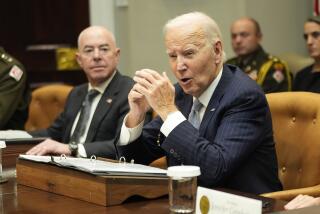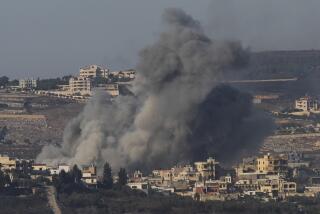For Syrians stuck in limbo in Lebanon, Trump’s ban will mean harder times ahead
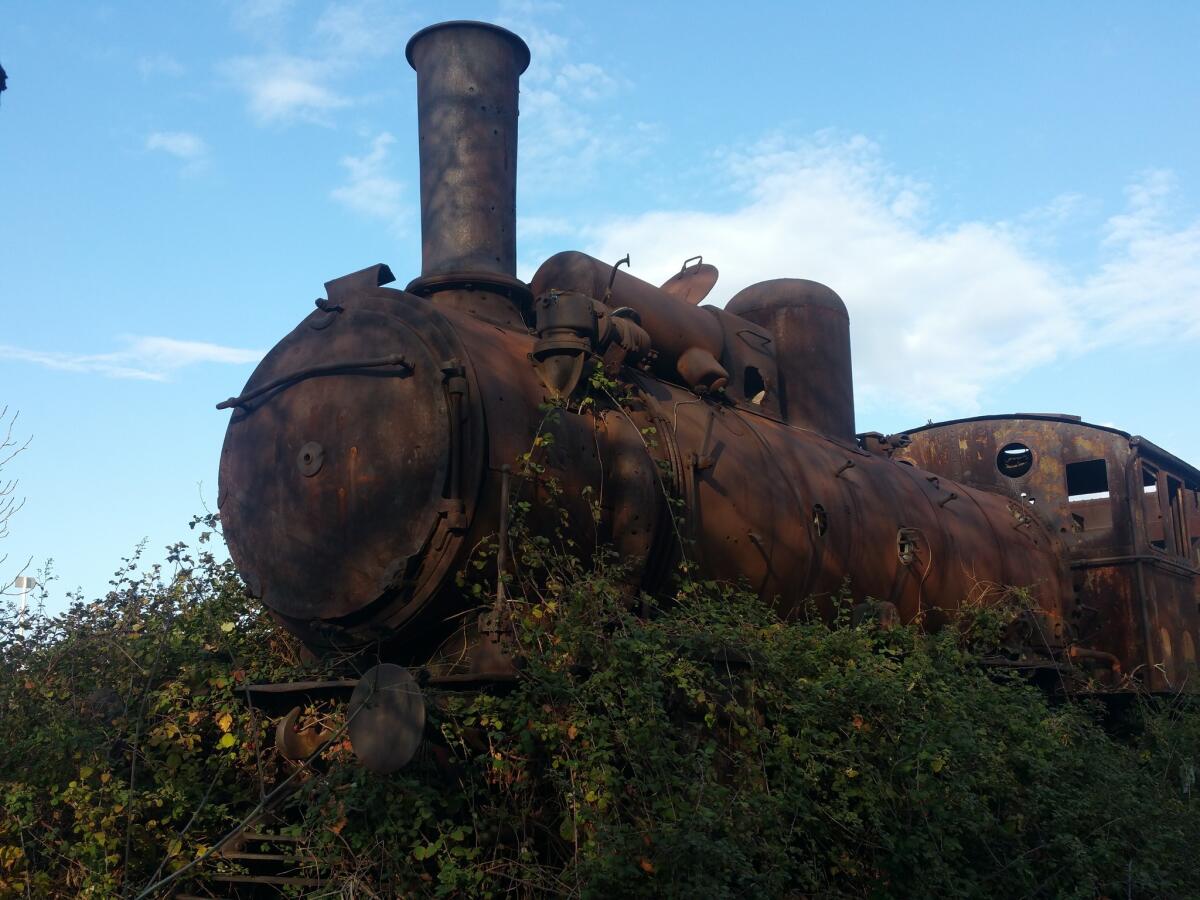
Reporting from Tripoli, Lebanon — Like so many Syrian refugees who have clustered together in this northern Lebanese port, where an abandoned, weed-strewn train station stands as a metaphor for dashed dreams, Abu Moussa is feeling the frustration of exile.
Unlike many people here, though, the 30-year-old vegetable vendor has no problem with President Trump and his ban on refugee admissions for Syrians.
“We can’t blame America,” said Abu Moussa — a nickname he gave for privacy reasons — as he took a coffee break Tuesday at a stall next to his vegetable stand. “Saudi Arabia and the Gulf states aren’t taking anyone. Those people are Muslims and they’re not helping.”
“Trump wants America first,” he added. “I liked him from the day he took office.”
That is decidedly a minority view in Tripoli, Lebanon — not to be confused with the capital of Libya — where hundreds of thousands of Syrian refugees have arrived in recent years, hoping that it will be a springboard to a new life in Europe or the United States.
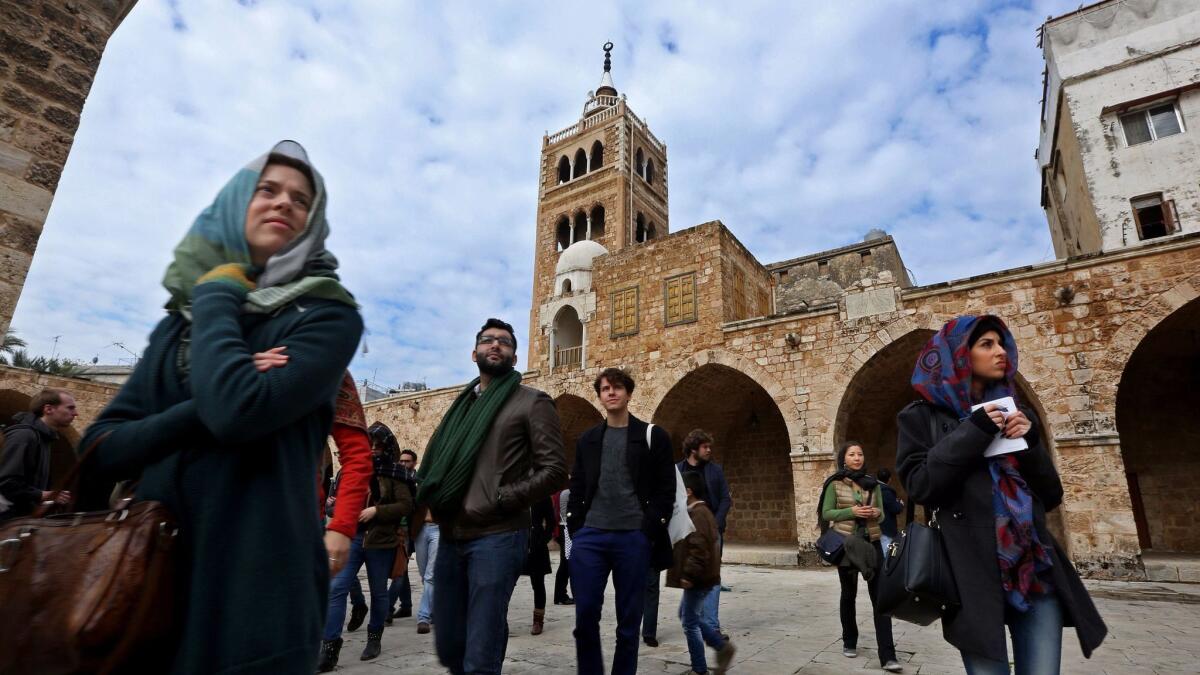
For most people here, Trump’s indefinite ban on the resettlement of Syrian nationals in America (as opposed to an injunction of at least four months on six other Muslim-majority countries) was further proof that the world has all but abandoned the refugees fleeing civil war.
Trump signed an executive order on Friday halting admissions to the U.S. by citizens of Iran, Iraq, Libya, Somalia, Sudan, Syria and Yemen. Another order stopped all refugees from entering the country for 120 days, but it banned Syrians indefinitely.
“Why are we Syrians specifically rejected?…. We’re now the worst scum of the Earth? The other six countries get to have their case reviewed, but not us. We’re the worst,” said Abdul Qader Qudr, a 52-year old Syrian former construction contractor from Tartus, a Syrian coast city a scant 40 miles up the Mediterranean coast from Tripoli.
“Yes, at least give Syrians a special treatment, but not like this… not special treatment for the worse.”
Qudr, who had applied to emigrate to the U.S. 12 years ago to join his brothers and elderly mother in Los Angeles, had left a job in Saudi Arabia six months earlier to finalize procedures for his immigrant visa in Lebanon.
Now, he said, his “dreams have evaporated.”
“I didn’t even register with the U.N. so I wouldn’t mess up my case. There’s no country that will take us now,” he said. Refugees must register with the U.N. to receive assistance and temporary residency in Lebanon.
“Go risk dying in the sea on a boat, you’ll get asylum. But try to go legally and you’ll get rejected every time. The stamps in my passport are like a joke,” he said.
Hundreds of thousands of Syrians, desperate to flee the violence of the six-year civil war ravaging their country, have opted for a risky sea passage between Turkey and Greece en route to refugee-friendly European countries, such as Germany and Sweden. The International Office of Migration recorded almost 4,000 deaths in 2015 for refugees making the Mediterranean crossing.
Large swaths of Syria have been destroyed in the punishing fight between forces loyal to Syrian President Bashar Assad and rebels who reject his rule.
About half of the country’s population has been displaced — some 11 million people — and of that group, about 4.8 million people have fled to neighboring countries and beyond.
Qudr’s sentiment was shared by many waiting for assistance in front of the U.N.’s Tripoli headquarters, located on a muddy street with fearsome potholes covered by the day’s rain. It’s a stone’s throw away from the Rashid Karami International Fairground, a sprawling (and unused) installation designed in the 1960s by the Brazilian architect Oscar Niemeyer. It stands as a testament to the one-time significance of Tripoli, which has been largely superseded by the capital, Beirut.
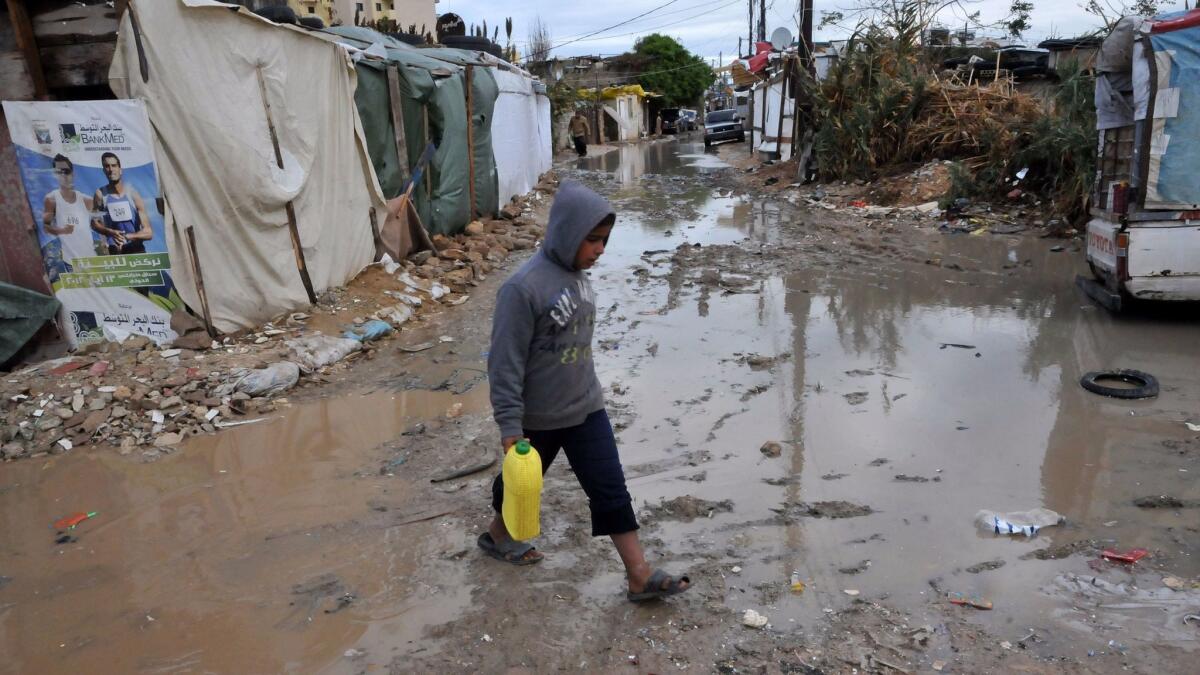
“I wish we would qualify for anywhere and leave here, but it’s useless,” said Saraa Merii, a 27-year old mother of three children who had come to update her refugee case file. Clutching her hand was her bashful 3-year-old daughter, Sidra, her face dominated by a grey Tom & Jerry cap.
As she spoke, Merii glanced at a woman in a hijab approaching the pool of rainwater that had formed at the entrance of the U.N. refugee agency compound. The woman teetered dangerously on high-heel sandals, one strap broken, the water lapping at her feet.
Merii had left the northwestern Syrian province of Idlib five years ago. She and her husband, a construction worker, were struggling to pay rent and feed their family. Although they failed to qualify for resettlement, she said she didn’t care and wanted to return to Syria.
“The whole world has been against Syrians, so what, now it’s only about Trump?” she said with a tight smile on her face.
Lebanon, whose population before the Syrian civil war was 4.3 million according to the World Bank, has taken in 1.1 million registered refugees — with an estimated 400,000 more off the books — a whopping 37% increase in its overall population. (The equivalent would be more than 100 million refugees flooding the U.S.)
They have seen their assistance slashed as aid agencies, faced with funding shortfalls, struggle to handle the deluge. And though Syrians in the past made up a significant percentage of Lebanon’s work force, the government has placed new regulations banning them from occupying certain white-collar jobs.
“Winter ends with us in debt. And people refuse to lend you more money after you’ve come to them once or twice,” said Ibrahim Ali Baroud, a laborer who had come to register his 2-month old daughter for assistance. Rain and cold temperatures means he spends days without work.
“It’s all against Syrians. Look how it is here. There’s no employment, and aid is not enough to cover the basic requirements of life.”
In a meeting with U.N. High Commissioner for Refugees Filippo Grandi in the Syrian capital of Damascus on Monday, Syrian Foreign Minister Walid Moallem “reiterated the Syrian government’s call for the Syrian refugees in the neighboring countries to return to their homeland, affirming the government’s readiness to receive them and provide their requirements,” according to a report by the official Syrian Arab News Agency.
Yet even among those able to go back to Syrian territories under government control, many fear being pressed into mandatory military service and dying in a battle that shows no sign of stopping.
Abu Moussa, the Trump supporter, was served coffee by Ahmad Raslan, a former Arabic teacher and journalist from Idlib, whose stall functioned as the street’s ersatz corner cafe.
“It’s unfair. His statements and his great aggression toward Muslims don’t show civility from the president of the greatest and strongest country in the world,” Raslan, speaking in eloquent formal Arabic, said of Trump.
“These are the words of a primitive person, not a civilized person. And he violates the principles of the U.S.”
After some back and forth, a third customer, who gave his name as Abu Mohammad, got the last word in.
“In the Emirates, it’s easier to get a visa for a Bangladeshi than a Syrian,” he said before giving an exasperated wave of his hand.
“For seven days, we’ve heard nothing but Trump. Enough.”
Bulos is a special correspondent.
ALSO
Border walls aren’t unheard of, but today they increasingly divide friends, not enemies
Trump’s refugee policy raises a question: How do you tell a Christian from a Muslim?
More to Read
Sign up for Essential California
The most important California stories and recommendations in your inbox every morning.
You may occasionally receive promotional content from the Los Angeles Times.

